
































BY ISMAIL SAID

Coaching has emerged to be a big global business as the most sought after professional development methods of corporate leaders. Previously considered a luxury only reserved for C-suite leaders, now leadership coaching has been seen as a required leadership intervention for corporations to succeed. This is evidenced by the increase in the coaching market size, in the number of companies adopting coaching as leadership development method, professionally credentialed coaches, and coaching researches.
25 to 40 percent of Fortune 500 companies use executive coaches. Hay Group further detailed out that 69% of companies listed in its ‘’Top 20 Best Companies for Leadership’’ harnessed its leadership capability from mentoring and coaching (Businesswire, 2014). Beyond just benefiting from executive coaches, companies that made coaching culture its leadership practice have reported revenues above their industry peer group (Human Capital Institute, 2016).
Such an impression coaching has made in the world of business, has led to the hike in the demand for coaching services. Coaching market size world-wide has grown to a $20billion dollar business in 2020 and the number of ICFcredentialed professional coaches soared to 86,900 in 2020, from 53,300 in 2016 (ICF Global Coaching Study, 2020). 6.28 million profiles have registered as “coaches” on LinkedIn in 2020.
Now that leadership coaching has taken the business world by the storm, scientific discoveries on effective coaching methodologies has become a necessity, especially to cater for the changing leadership contexts and eco-systems. In the world of research and development, coaching is expanding in depth and breath as a serious research. Peer-reviewed publications on ‘’executive coaching’’ in PsycINFO database has increased by 800% in 2017, from only 32 citations in 2020.
Opportunities and access to coaching is becoming more abundant with the emergence of the Industry Revolution 4.0 and internet technologies. Coaching will soon no longer an exclusive to some who could afford its luxury. Now one can access coaches one fancies from any corners of the world and benefits from coaching sessions anytime. Welcome to the edge of ‘’Coaching Anytime, Anywhere’’. Coaching is now a necessity, not a luxury.
So what is the big deal about coaching? Is it an art, a science, or it is that and more? Does it work? In this VUCA world, when the world is destructible in just a few seconds, leaders are expected to go beyond receiving and responding to changes - to able to proactively prepare the state civil services, in that there is organisational intelligence, capability and resilience to lead the way forward, whilst manoeuvring through such tumultuous of unexpected, disruptive changes. This requires cognitive, emotional and action readiness in our leaders – the strategic preparedness and agility to handle the situation at hand and still prevail. The whole process of coaching provides both science and arts for the required leadership agility, as it nurtures clarity in thinking, the ability to reflect far and deep, and the daringness to think far, think different, think strategic and think pragmatic. Above all, coaching process also evokes new awareness in a person, that opens up more avenues for personal growth, thus increases personal resilience.
The thorough impact of coaching and coaching culture is summed by the Human Capital Institute (2016), in a study on 900 human resources (HR), learning and development (L&D), and talent management (TM) professionals, leaders and managers;
• Organisations with a strong coaching culture report recent revenue above their industry peer group
• 36% reported improved leadership development: wise, agile and innovative leaders who develop organisational intelligence, capability and resilience to lead the way forward in the abruptly changing leadership context and eco-system
• 45% reported improved employee relations; 56% reported improved employee engagement
• 57% reported team functioning
• 51% reported improved productivity
Impact of Coaching, Human Capital Institute (2016)

What is “coaching”? Like many other emerging disciplines, coaching is sometimes mistaken for, and interchanged with, the practices of mentoring, counselling, consulting or even therapy. As such, it is important that leaders understand these separate disciplines and master the art of coaching. This will not only empower them to achieve better results in their own leadership, and also improve the productivity and performance of others they are leading. International Coaching Federation (ICF) defines coaching as “partnering with clients (meaning the person who receives the coaching) in a thought-provoking and creative process that inspires them to maximize their personal and professional potential”. Coaching focuses on setting goals, creating outcomes, and managing personal change.
In today’s workplace, organizations are boosting their engagement across stakeholders and enhancing development across all job scopes by offering coaching and coaching-skills training for managers and leaders. Why is coaching important in leadership development?
Firstly, leaders are increasingly faced with complex challenges in the world today, even the most capable leader cannot keep up with all aspects of a rapidly changing environment such as what is currently being experienced globally.
Secondly, leaders cannot and should not fix everything, nor can they solve all the problems in isolation. Therefore, ideas and solutions are often co-created with team members or through innovative and creative cross-functional think tanks. The process of co-creation enables leaders to learn and grow on the job. On the other hand, organisation efficiency will be compromised when solutions are solely provided by a lone leader or from within a silo.
Thirdly, we are in an era that embraces a multi-generational workforce – Baby boomer, Generation X and the Millennials. Are you, as a leader, in-tune with the type of leadership needed, in this environment, while coaching others? Leaders build self-awareness and gain clarity on how their current leadership style and behaviour reflects upon the growth of those around them and in the creation of Next Generation (Future) Leaders.
According to the 2020 ICF Global Coaching Study reported by PricewaterhouseCoopers, among the survey respondents in Asia who use coaching skills at work, 59% of them are managers/leaders whereby 41% are HR professionals. From a generational perspective, Generation X accounts for the majority (63%) of managers/leaders using coaching skills, followed by Millennials (25%). Leaders who coach have a better position in recognizing the unique strengths of a diverse workforce. Illustrating that embedding a coaching culture will strengthen engagement across stakeholders and will enhance cross-functional teamwork, which are critical to organisational performance.
The study also indicates that 93% of the managers/leaders surveyed have received coach-specific training. The majority (79%) received training that was accredited/approved by a professional coaching organization. When asked about their future plans, 74% of the managers/leaders said they plan to enrol in additional coach-specific training in the next 12months.
Coaching is no longer a nice-to-have leadership skill. Organisations are expanding the scope of their managers/leaders, using coaching skills to create better productivity, performance, and overall results (ROI). For an organisation to fully progress and excel, it’s not just leaders who need coaching provision. Leaders must subsequently practice the art of coaching others within the organisation, as part of their leadership responsibility, to establish growth, change and positive transformation. As Peter Drucker once said, “Leadership is lifting a person’s vision to higher sights, the raising of a person’s performance to a higher standard, the building of a personality beyond its normal limitations.” Today, we know that it can be achieved through coaching.
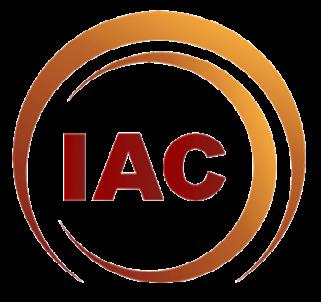


President, International Association of Coaching
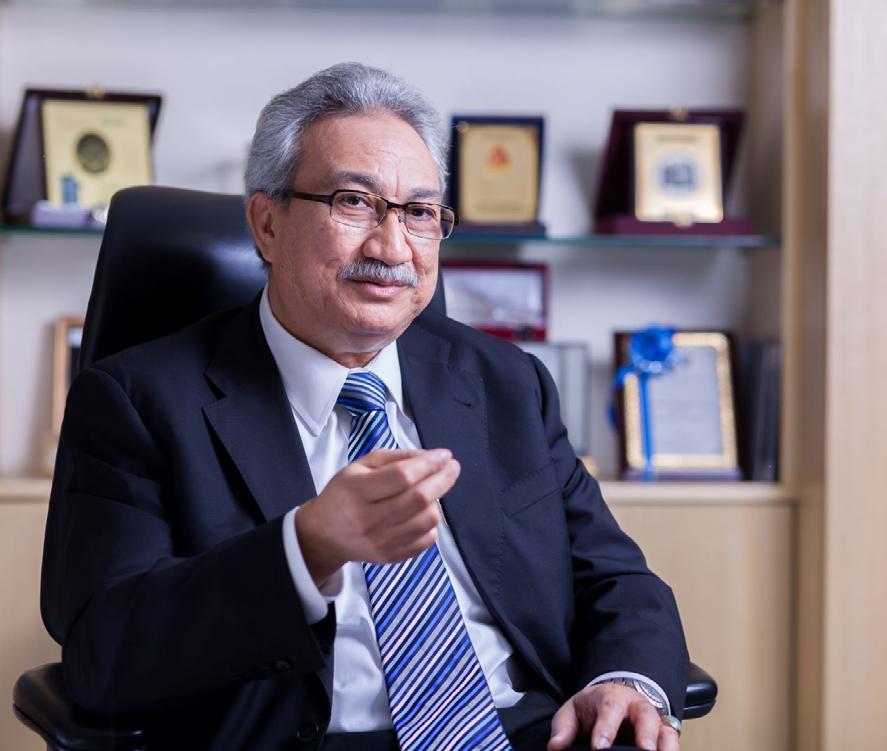
Haji Yasir Abdul Rahman @ Bertram Joseph is a Sarawakian born and bred, who distinguished himself in the field of human capital at both national and international level. Driven by his passion, he is an Executive Coach holding several coaching credentials including the Professional Certified Coach (PCC) under the International Coach Federation (ICF) USA.
The second of five siblings, he was born on 25 December 1957 in Kuala Belait, Seria, Brunei Darussalam where his late father worked for Brunei Shell Petroleum (BSP) as Seismic Driller and then Air Traffic Controller at Shell’s Anduki Airport. His family later moved back to Miri and then to Mukah, hometown of his maternal grandmother - Bibi Francisca Rodway - where he spent most of his growing up years. He completed Sixth Form at Kolej Tun Datuk Tuanku Haji Bujang in 1976 and proceeded to Universiti Malaya to graduate with BA in Anthropology & Sociology in 1980. Subsequently he attended INSEAD’s post-graduate Certificate in International Management and then obtained his Master of Science in HRD from Universiti Teknologi Malaysia.
Haji Yasir led a highly successful career of >33 years with the national oil corporation, serving 12 years in MLNG and ABF in Bintulu before moving to Kuala Lumpur where he served in Carigali and Petronas Gas Bhd, culminating as Chief Executive Officer of the Petronas Leadership Centre from 2010-2014. As CEO he raised the performance, capabilities and profile of PLC both nationally and in the international arena, earning recognition as a benchmark Corporate University in South-East Asia (BCG, 2012) and receiving Gold Award from Global Corporate Universities Council in Paris in 2013. Most importantly he pioneered executive coaching as a critical leadership development component and introduced coaching into its mainstream learning curriculum. This led to PLC being a model in the region for coaching accreditation in collaboration with top coaching faculty from around the world.
Haji Yasir began establishing his name in Executive Coaching in his CEO days, starting with pro bono hours he developed his own unique approach focusing on empowering his clients through self-awareness and leveraging developmental potential for sustainable change. His diverse range of clients come from all walks of life - CEOs, SME owners and Senior Civil Servants (JUSA) and others wanting to realize emergent opportunities and ‘pivot’ in these chaotic times.
In his own life’s journey he has had to break though many glass ceilings along the way. Based on his leadership experiences Haji Yasir believes that coaching is an indispensable leadership competency as never before in order to harness the collaborative intelligence of our talent pools. As we navigate toward a brighter future, it is essential that all efforts be made to “develop the coach in every leader” as a gateway capability to mold the next generation of high-performing leaders. Even helping one such leader to succeed will make a world of difference.
This is a purpose that keeps him in the field of executive coaching.
Globally, executive coaching has increasingly been adopted (both in the public and private sectors) as one of the most effective ways to develop high-potential leaders. It has embedded as integral process of Leadership Development Strategy for grooming elite executives and talented-upand-comers at IBM, Motorola, JP Morgan, Chase, Hewlett Packard. As psychiatrist Milton Erickson said, “Every person has latent talent not known to self.” Executive Coaches partner with clients in a personal, safe, and trusted space for open, transparent, and objective conversations, a thought provoking process that inspires them to optimize their personal & professional potential, in reflecting and challenging them to harness talent and attain personal mastery of their inner self in leading others. Stephen Convey reminded us “the previous leadership practices that got us to where we are, will not get us to where we need to go”. Scenarios have changed, organisations have flattened, collaboration and inclusion are increasingly become more important than ever (and not a slogan plastered to a wall) to be able in engaging, collaborating and facilitating others towards co-creating collective synergy in leading others for success.
In recent years, Executive Coaching has been embedded as a critical Leadership Development tool to groom multilevel Leaders to develop leaders. At each level of the multilevel hierarchy, high-potential leaders are purposefully developed to stretch and achieve superior performance (exceed targets); harness their talent for Competence Development to prepare for the next job grade whilst at the same time, equip Leadership Coaching skills in developing their subordinates.
In his extensive experience as an executive coach, he has encountered clients buckle under the weight of pressures with increasing demands. Within a short duration of downtime & interruptions between intense cycles of “busy-ness,” managers are often caught up in the process of doing and lose sight of what it means – impact & implications of their actions. He has met leaders who yearn to be more authentic and intentional about what they do and how they do it, whilst to be a part of a nurturing and inclusive workforce. This ‘longing’ constitutes the essence of leadership at work i.e. the manifestation of consciousness, intention, and connection. The antidote for “waking unconsciousness” evokes the leadership esprit. He has had the privilege to witness leadership transformations by executives through the enhancement of their Contemplative Reflection (consciousness), Leading & Engaging Others with Purpose (intention) and Relationship Effectiveness (connection) vide his application of these 3 coaching practices:
Introspective understanding and viewing new perspectives (logical and emotional) in evaluating and challenging their past experiences by shifting their own worldview
Conscious Competence steps in reflecting on stages of continuous learning and development process
Double-loop learning and behavioural change in amplifying and leveraging performance outcomes
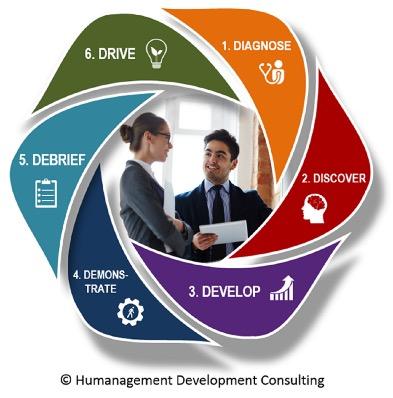
Upon reflection, he has crafted an authentic Executive Coaching Framework to inspire, energize and facilitate purposeful conversations in pursuing professional development and personal growth via the following 6D™ process:
Consultative to engage in establishing mutual trust and respect, comprehend the scenario, and identify the objectives, desired outcomes, measures of success, and its parameters (Begin with An End in Mind).
Inspiring to explore, probe, draw from within and realise ‘Will vs. Competence’ in constructing Joint Partnership in instilling ownership, responsibility, and commitment (Lead above the Line).
Collaborating to elevate, amplify, intensify and enhance in growing new know-how (unskill/reskill/upskill).
Reviewing the learning application to promote persistence in sustaining momentum with constructive feedback and support.
Appraising to evaluate and manifest (quantitative & qualitative) the transfer of on-job application of acquired skills and confidence in leveraging performance with differentiated results.
What’s next? Authenticating to exemplify, evolve, embrace, innovate and re-inventorise ‘potential vs. performance’ in nurturing new opportunities and harnessing talent to soar to the next level for further leadership advancement.
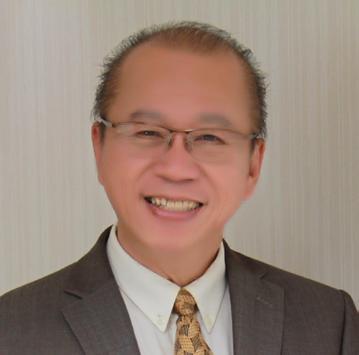
Peter is another pride for Sarawak, who has taken Executive Coaching globally, having garnered 35 years of experience leading individual, team and organisational transformation with over 3000 hours of executive coaching across Asia Pacific. Peter is a Fellow, Chartered Management Institute, UK; People Director (Asia Pacific), International Certification Bureau ISO 17024 Human Capital Development; Adjunct Executive Coach with ICLIF, a member of International Coach Federation and a member of Institute of Coaching, USA. He commenced his career in 1975 as a Sarawak Administrative Officer (R&DO) and Assistant State Training Officer (Chief Minister’s Office, Training Branch) for 14 years. He joined Shell Malaysia as the Learning & Development Consultant, Head of IMPACT Management Development Training and Management Development Trainer in Shell East Australasia Regional Training Scheme. He left Shell in 1998 and extended his industry experience in coaching and developing executives in key domains of strategic leadership, enterprise management and organisational transformation in a diverse range of industrial portfolios, including oil & gas, manufacturing, pharmaceutical, banking, shipping, palm oil, property development, tele-communications, hospitality, solar energy and engineering. His passion for executive coaching has been accorded with a reputation in transforming core competencies into action, delivering impactful results towards achieving sustainable development and business growth. His major clients and coachees include high-potential managers across Turkey, Georgia, Azerbaijan, Oman, Kuwait, Iran, Iraq, UAE, China, Hong Kong, Taiwan, Vietnam, New Zealand, Australia, Brunei, Philippines, Thailand, Indonesia, Singapore and Malaysia.
Hello! Thank you for still reading Coaching to IMPACT. Welcome to ‘’The Essence of Coaching’’ and in this edition, I would like share about the power of the “white canvas’’ – the state of “serving clients in a complete neutrality, absence of judgement’’ that has served as one of the main ingredients in coaching skills.
Allow me to begin by sharing about Danny and Daniel to picture how the white canvas works in coaching.
Danny, aged 40, is a bright person, and a University graduate. Danny started his career in what every youth wants to imagine – just few years after entry, he stole the eye of his top bosses, and climbed up straight away to a senior management position. But fate had it, one day the top management changed, and Danny was removed from the senior management role, and back to his ordinary grade 41 – an entry grade for many in the public service. But Danny is not one who would give up on himself. He resiled over pressure, kept striving his best, refusing to give in to fate. Finally, the management changed hands again, and Danny was again in the favourable management position, having proved his resilience and inspiring attitude.

Daniel, aged 40, is also a bright person, and a University graduate. Daniel has worked for the company for 22 years, and has secured some good track records. However one fine day, the leadership changed hand, and Daniel found himself not in the list for promotion. Daniel felt that he had no future at all. He spent most of his time, blaming all other parties – immediate supervisors and colleagues. Fast forward 22 years later, Daniel found himself in the same job position as he was when he first joined the company.
Both Danny and Daniel, are huge talents – bright, living and working in similar culture, and had similar opportunities. But what is different in the two, is how they saw themselves, the changing world, hence, changing lucks, and how they took setbacks. In our life today, as a human beings whose strengths would be constantly tested, we may face both situations – such as Danny’s and Daniel’s. Via coaching process, both Danny and Daniel, could be inspired to grow greater, leap higher. But how could coaching process help Danny and Daniel, grow greater and leap higher?
Given that coaching is such a power in evoking new awareness and perspectives, and removing blocks to success, where does coaching serve best in organisations?
In many huge corporations such as the Fortune 500 corporations, coaching is served hand-in-hand with other human resource strategies such as training, mentoring, and counselling. While training serves as a platform where on learns new skills, coaching strengthens the transfer of skills by one-on-one sessions that enables one to enhance the newly learned skills into practice, in the real context of the job, capitalising upon one’s strengths. While mentoring serves as a platform where one learns new on-the-job wisdom on everything under the sun from one’s mentor, coaching assists one to enhance one’s specific skill, or competence, where one is facing road-blocks that prevents optimum performance. While counselling or therapy serves as a platform where one could re-process the un-useful past baggage, coaching assists one to process mindset and action blockages that prevent one from taking actions to leap forward.
As evidenced in many organisations who have adopted leadership coaching, coaching works in many ways; – coaching for development, when it is embedded in the onboarding programmes to help new leaders develop critical skills; coaching for performance, when it is introduced to leaders who have all the skills and yet to enjoy leaps of performance; and coaching for transformation, when it elevates leaders to embrace mindset, behavior and skill change.
Done effectively and impactfully, coaching works anytime, with anyone.

Mai S Ishak
GMC, MPA, ABP

Mai S Ishak is currently the Resident Fellow (Executive Coaching) and Head, Department of Coaching, Leadership Institute of Sarawak Civil Service, serving on secondment from Universiti Malaysia Sarawak. She is a seasoned industrial psychologist and business psychologist registered in Malaysia and United Kingdom, with 22 years of experience servicing high risk industries in Asia. Maia is also an ICF-trained leadership coach, trained and supervised by Inderjeet Singh, ICF-MCC, ICF India, based in Mumbai, India, and expecting her ICF-PCC by October this year.
Author: Mai S Ishak, GMC, MPA, ABP
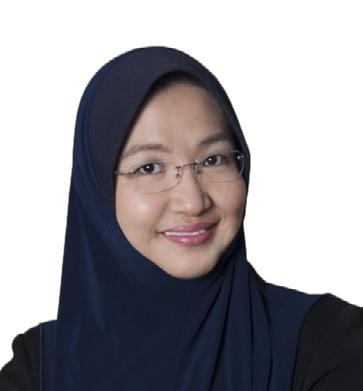
‘’Firstly, I am truly grateful to be part of the pioneer batch of Certified Leadership Coach for the Sarawak Civil Service (“SCS”). The certification journey has flourished my life satisfaction towards fulfilling my goals and further motivates me to perform better in my job. In addition to that, I would be able to leverage on the skills gained from the certification to recognise and manage my own habits, emotions, competencies and motivation, among others. I hope to position myself as a confident facilitator of learning to assist future coaches and coachees to shine through their own potentials and capabilitiesOn a wider perspective, I also foresee my role in building a pool of committed coaches and leaders within the SCS who will not only spur talent and knowledge management but also in facilitating the State in achieving a World Class Civil Service and Developed State status by 2030’’
Dr
Intan Rahmah IAC-Masteries Practitioner
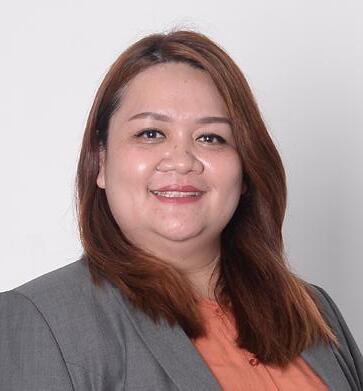
’Being on this journey, not an easy journey. You must love what you are doing. The humanizing relationship between coach and coachees really helps me to develop myself to another level. Through this certification really harness my inner wisdom and experiences to make choices that are the best for me’’ - Helena Ului, IACMasteries Practitioner
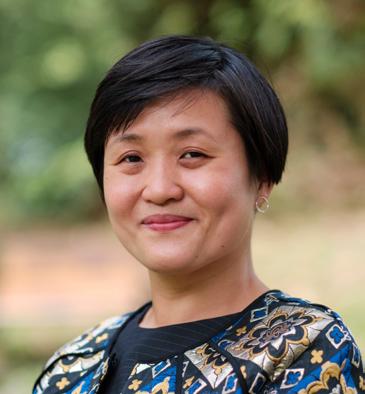
‘’I recently received my ICF Associate Certified Coach (ACC) Credentials in early August 2021. ACC Credential-holders have to undergo 60+ hours of coach training and record 100+ hours of coaching experience, in addition to passing numerous coaching exams. It has a been a very fulfilling journey for me - in gaining practical coaching skills and ultimately guiding my clients towards achieving their goals. I am looking forward to my part-time role in coaching leaders of departments in the Sarawak Civil Service!’’
Mildred Voon ICF-Associate Certified Coach

‘’It serves as a good checklist for me to be more aware on which masteries and techniques I must improve. What’s more important it helps me to be able to learn to listen with curiosity, reflect with accuracy, question effectively and provide constructive feedback at workplace and in my personal capacity. The training and frequent practice session allows me to be more open to comments and it becomes a constant reminder (my booster “pill”) to instil a nurturing behaviour’’.
Estia Amy IAC-Masteries Practitioner

‘’Leadership is leading people, inspiring them through trust and respect. One of the most essential skills leaders must have is to be able to lead the organisation and develop the next-in-line leaders through effective conversation (coaching). Hence, IAC provides a platform for me to discover potential in myself to lead others in making a difference to the society’’
Hasriq Hadil
IAC-Masteries Practitioner
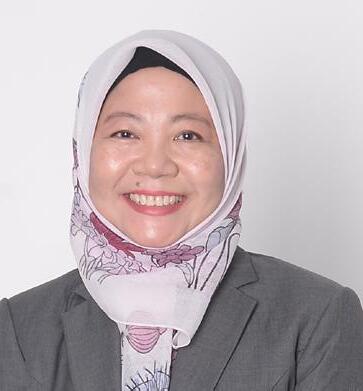
’By continuously practising the rights skills sets i.e. the Coaching Masteries that we learnt i.e. the Coaching Masteries has actually helps me to close the gap when dealing with people’’
Noor Salmi
Hussaini
IAC-Masteries Practitioner
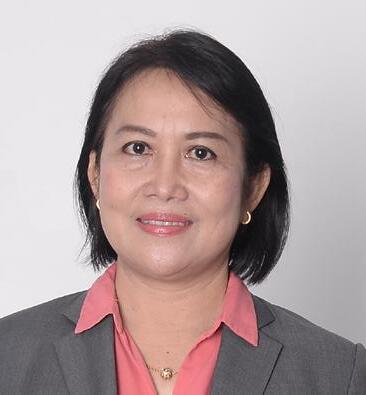
‘’Coaching has helps me to have a clearer vision about myself and my goals. My talent, my confidence is much visible than before. I learned to become more patient and understanding when communicate with others. What I’ve learnt (and I am still learning) is not to jump to conclusions, to listen more, and to give myself time to reflect on why and how I respond. By having myself as a certified coach in future will bring me to another level of achievement in my life’’
Maureen Jono IAC-Masteries Practitioner

‘’I learned to be more open, a better listener and value the relationship with others. It is a journey to help others to develop themselves and helps me to grow as a person’’.
Faridah Ali Masteries Practitioner, IACMasteries Practitioner
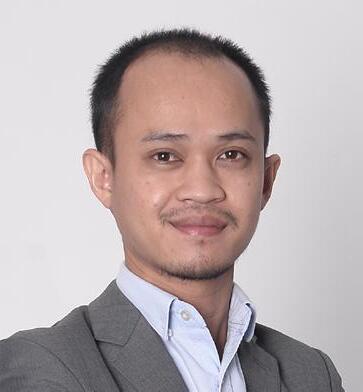
‘’Coaching is to help others develop self-awareness’’
Justine Pengiran Coach in Training for certification with IAC
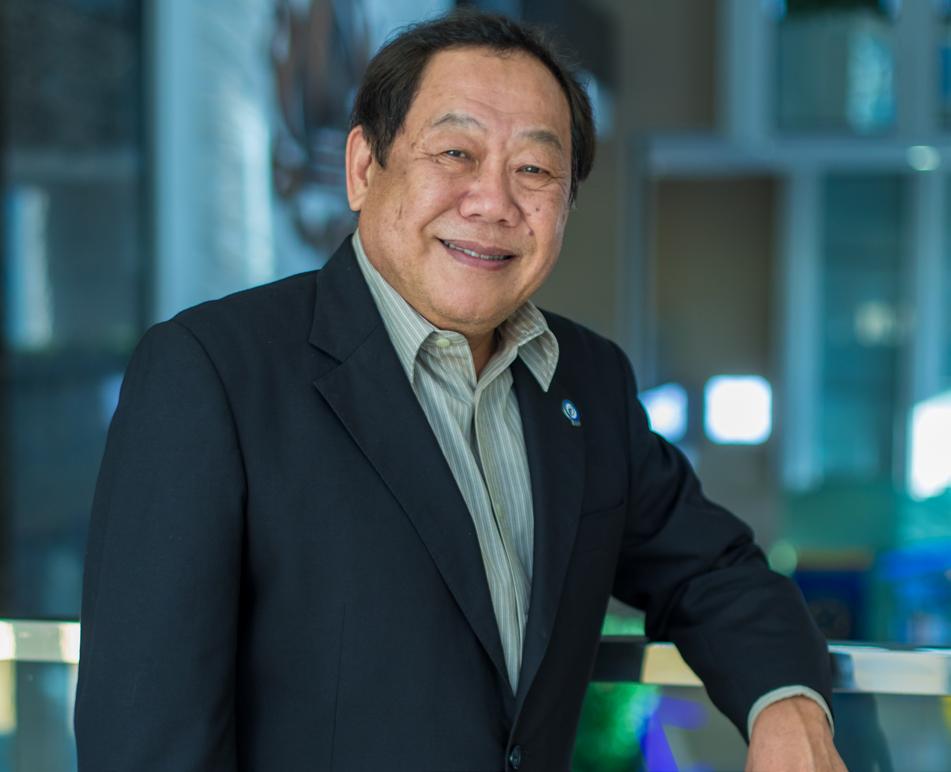
DR MICHAEL HEAH, PHD, MCC-ICF
Dr Michael Heah, Master Certified Coach Chairman, Malaysian Association of Certified Coaches CEO, Corporate Coach Academy
Adjunct Professor, Universiti Utara Malaysia mikeheah@corporate-coach.com
About twenty years ago, my life with Coaching started off with this question I asked myself “What is even more powerful than training?” I needed this answer to help find a more fulfilling career to replace the top tourism job, which I had decided to quit after twenty-three years in the corporate world.
Finally, I found the answer to this question: COACHING!
It was an unusual discovery as Coaching was totally unknown in Malaysia then; and was only two years old in the western world. Coaching was truly my ‘love at first sight’. The more I got to know about it, the more I loved its philosophy that ‘people become high performers when they work on their skills and will. Indeed, it is definitely more powerful than training, mentoring, counselling and many others. I was completely convinced that my life mission was to become a COACH to support ordinary leaders to become extraordinary ones, and to support them too if they want to become coachleaders themselves. It became even clearer when I found the International Coaching Federation (ICF) in USA among the many others. Something told me that ICF was going to be the biggest name in Coaching (and so it is today). I decided to put my whole faith in it. So I brought ICF Coaching into Malaysia and established the ICF Malaysia Chapter. I became its Founding President in 2001 and then went on to become the 1st ICF Professional Certified Coach here (and later become a Master Certified Coach).
Moving forward, I set up Corporate Coach Academy (CCA) as the 1st ICF Coaching School to build more ICF coaches, and later expanded it further with Corporate Coach as an executive coaching service centre to build stronger corporate leaders. Ten years later, the Malaysian Association of Certified Coaches (MACC) was formed to become the 1st national coaching organisation as a ‘home’ for true blue coaches to continue to grow their coaching skills and coaching careers. Looking back now after twenty years in Coaching, it is so gratifying that my vision to ‘grow a vibrant coaching community in Malaysia’ is realised, and also to be known as the ‘Father of Coaching’ here. None of my UK degrees, nor the title of adjunct professor or the many prestigious leadership awards can match these coaching achievements.
Today, there are more coaching schools. More coaches. More and more organisations are embracing Coaching. And one of them today is Sarawak, which is on its way to build a coaching culture in its civil service. Stay focused on this vision and soon Sarawak will be a model state in Coaching with highly passionate coach-leaders who have the coaching mind-set and skills to lead Sarawak (with you included) into a new era of prosperity and growth.
Sarawak Mesti Boleh!
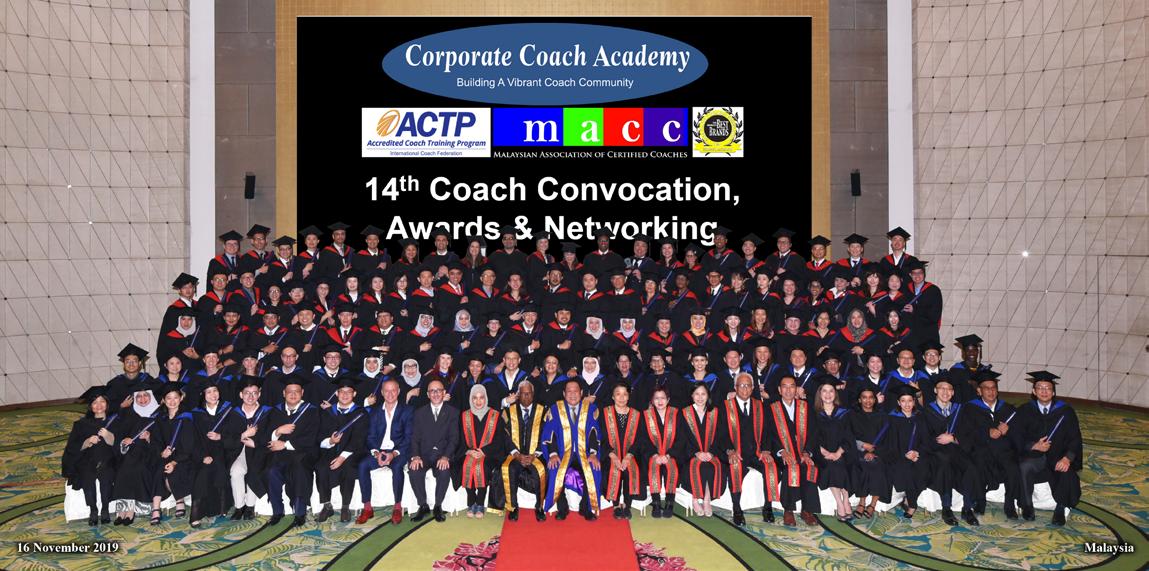

TOPIC 2: HOW TO BE THE BEST COLLEAGUES IN THE WORLD USING
THOMAS KILMAN MODEL ON DOICA


DATE: 28 – 30 JUNE 2021


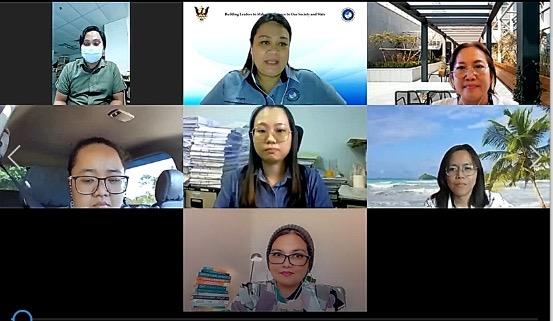





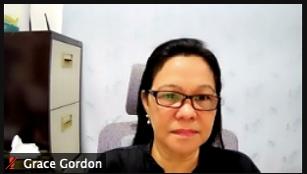
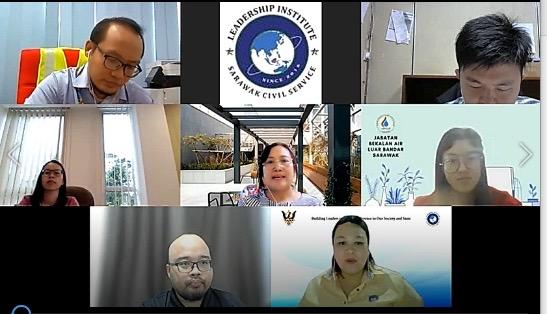
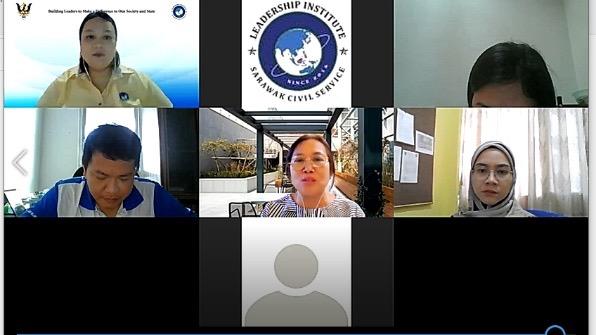
“How to be the best colleague in the world” Group Coaching Session was implemented with OB30 2.0 Siri 1/2021 participants soon after they completed the phase 2 of the On-Boarding Programme. Participants were coached as to how to master flexibility and agility by using each type of DOLCA, for optimum working relationships that could result in best team performance.
The Kilman Model, DOLCA, was used to assist participants discover how they adapt their communication and action style when facing conflicts with colleagues. DOLCA stands for Dominating, Obliging, Integrating, Compromising and Avoidance conflict resolution style.
The 5 different style is something new for me, extra knowledge gained
~ Hilda
Knowing my strengths and weaknesses and how to solve conflict and issue at workplace
~ Jacqulyne
Understand how to manage conflict with colleague at workplace using DOICA style in details
~ Deggie
The LISCS Coach training prepares coach candidates for certification with global coach certifying bodies, specifically but not limited to, International Coach Federation (ICF) and International Association of Coaching. Such international certifying bodies allow limitless coaching career, since it opens up to unlimited coaching market.

Coach Credential Tracks with ICF
Master Certified Coach
1200 hours practice fee rate: RM3000/hour
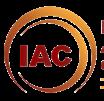
Coach Credential Tracks with IAC
Master Masteries Coach
Professional Certified Coach
500 hours practice fee rate: RM800/hour
Certified Masteries Coach
Associate Certified Coach
100 hours practice fee rate: RM400/hour
Masteries Practitioner
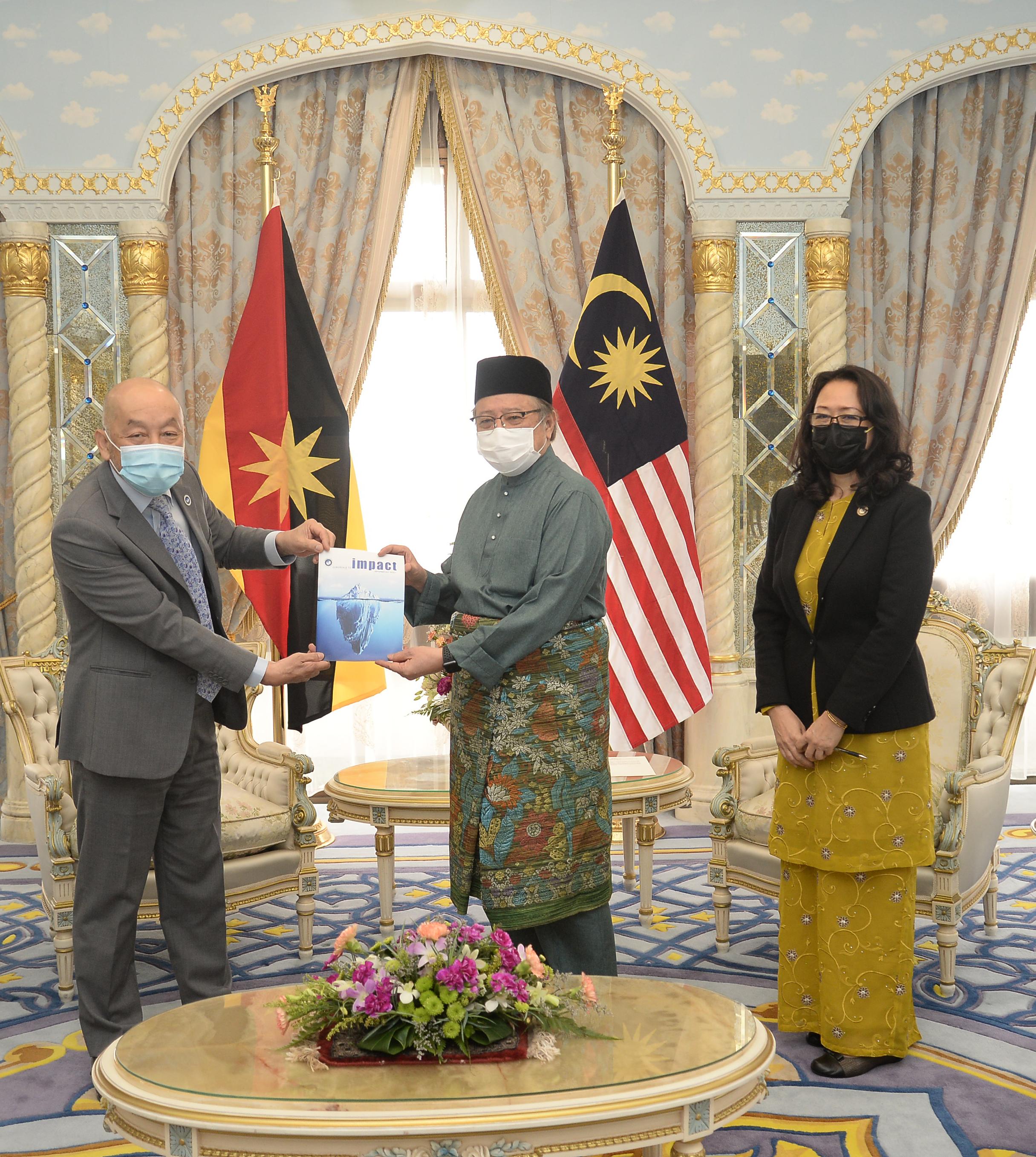
Making Coaching Impactful in Sarawak Civil Service
- Ismail SaidCEO Leadership Institute of Sarawak Civil Service
Leadership Institute of Sarawak Civil Service KM20, Jalan Kuching Serian, Semenggok, 93250 Kuching, Sarawak.
Telephone : +6082-625166
Fax : +6082-625966
E-mail : info@leadinstitute.com.my
Website: www.leadinstitute.com.my